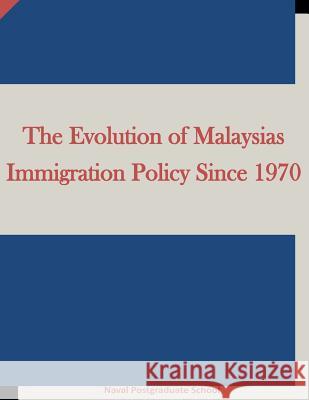The Evolution of Malaysias Immigration Policy Since 1970 » książka
The Evolution of Malaysias Immigration Policy Since 1970
ISBN-13: 9781523223763 / Angielski / Miękka / 2016 / 82 str.
In the 1970s, Malaysia's government promoted economic growth through an economic structural change from agriculture to industry. During the economic changeover, Malaysia's lack of human capital contributed to the persistent labor shortages. To meet the demand for labor, especially in manufacturing and construction, the government adopted a liberal immigration policy that permitted large numbers of workers to enter the country. Although many entered legally, many more did not. Most workers entered from Indonesia, which was close in proximity and shared a common culture. By the 1990s, many Malaysians increasingly began to blame to immigrants for societal woes and economic setbacks. The government found itself in a quandary. Its immigration policy was promoting economic growth, but also generating opposition from society. Public opinion about both effects of immigration policy-economic growth and public opposition-could determine political outcomes. In response to public pressure, the government adopted a more restrictive immigration policy. During the 2000s, the Malaysian government deported tens of thousands of illegal immigrants annually. The government's crackdown on illegal immigrants specifically targeted Indonesians. The government's economic policies, however, still favored sectors that depended heavily on immigrant workers. This book analyzes two periods of time-1970-1990 and 1990-2010-to determine whether labor demand, government approval, or public pressure influenced the drastic change in Malaysia's immigration policy.
Zawartość książki może nie spełniać oczekiwań – reklamacje nie obejmują treści, która mogła nie być redakcyjnie ani merytorycznie opracowana.











